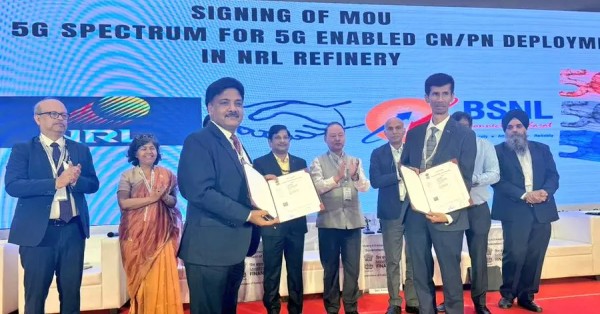Overview of Samsung’s $6.4 Billion CHIPS Act Funding
Samsung Electronics celebrated a significant milestone with the announcement of receiving up to $6.4 billion in direct funding under the CHIPS and Science Act during a special event featuring U.S. Secretary of Commerce Gina Raimondo. This event was held at Samsung’s new semiconductor manufacturing facility in Taylor, Texas. The investment is part of a national effort to strengthen the United States’ semiconductor manufacturing capabilities, emphasizing the strategic importance of the semiconductor industry to the country’s technological and economic future.
The announcement event was a highlight for both Samsung and the U.S. Department of Commerce, underscoring a mutual commitment to enhancing America’s semiconductor industry.
Samsung Semiconductor CEO Kye Hyun Kyung, alongside Secretary Raimondo, articulated the company’s future vision. Kyung emphasized, “We’re not just expanding production facilities; we’re strengthening the local semiconductor ecosystem and positioning the U.S. as a global semiconductor manufacturing destination.” This plan includes enhancing capacities to produce cutting-edge chips crucial for a variety of applications in the automotive, consumer technology, IoT, aerospace, and more.
The Economic and Technological Impact of Samsung’s Funding
The substantial funding from the CHIPS and Science Act is set to dramatically elevate Samsung’s manufacturing capabilities and technology deployment in Central Texas. The investment aims to boost new manufacturing capacities and integrate advanced semiconductor technologies, particularly in the development and production of AI chips, which are pivotal for future technological advancements.
For nearly three decades, Samsung has played a crucial role in the economic development of Central Texas. The company’s initial venture in Austin, which started in 1996, has so far resulted in $18 billion in investments with two operational fabs. The latest announcement to expand into Taylor with a minimum investment of $17 billion signifies a major leap in Samsung’s commitment to the U.S. economy, totaling an anticipated $40 billion in the coming years. This expansion is not only one of the largest in U.S. history but also a transformative move for Taylor, Texas, evolving it into a significant hub for semiconductor manufacturing on a national scale.
Samsung’s Future Plans and Community Contributions
Kyung outlined a broader vision for Samsung’s role in the U.S., focusing on the significant economic impact expected from this expansion. The company projects to double its economic contribution within a year, greatly influenced by the operational growth from $13.6 billion to $26.8 billion. Samsung’s commitment extends beyond manufacturing, as it plans to invest substantially in the local workforce and community development. These initiatives include creating educational partnerships and training programs aimed at nurturing the next generation of semiconductor professionals.
Samsung’s Sustainability Goals in Semiconductor Manufacturing
Samsung’s dedication to sustainability is integral to its expansion strategy. The company has committed to achieving 100% clean energy usage and enhancing its water recycling efforts within its manufacturing processes. These environmental goals are aligned with broader global sustainability targets, positioning Samsung as a leader in eco-friendly industrial practices.
The Shared Goals of Samsung and U.S. for Semiconductor Growth
The partnership between Samsung and the U.S. government under the CHIPS and Science Act is a significant step towards securing the country’s position as a leader in the global semiconductor industry. This collaborative effort is expected to yield substantial benefits for the U.S. economy, enhance the national security apparatus through technological independence, and position the U.S. at the forefront of global semiconductor innovation and production. Samsung’s ongoing investments and community-focused initiatives are set to foster long-term economic growth and technological advancement, benefiting both the industry and the broader U.S. economy.
Endorsements from U.S. Officials on Samsung’s Expansion
Samsung expressed gratitude for the pivotal roles of various stakeholders in this endeavor. President Joe Biden, Secretary Gina Raimondo, and the Department of Commerce were thanked for their proactive support. Appreciation was also extended to the Members of Congress responsible for facilitating this development. At the state level, Governor Greg Abbott, the Texas state government, and local entities such as Williamson County, the Cities of Taylor and Austin, and their communities received acknowledgment for their steadfast support.
Samsung also recognized its robust network of customers and suppliers for their trust and partnership, and importantly, the company’s over 20,000 U.S. employees whose efforts continue to drive Samsung’s success in America. Samsung sees this moment as the beginning of a new chapter in Texas, marking a significant milestone in its journey.
U.S. Senator John Cornyn (R-TX) highlighted the security and economic benefits of investing in semiconductor manufacturing, emphasizing the role of such investments in boosting national security and global competitiveness while creating job opportunities in Texas.
U.S. Senator Ted Cruz (R-TX) pointed out the need for legislative action to avoid delays that could jeopardize the national security objectives of the CHIPS Act, advocating for the passage of his bipartisan permitting reform legislation.
U.S. Representative John Carter (R-TX) praised the funding as a boon for the semiconductor supply chain, which will significantly benefit the local economy of Taylor, Williamson County, and Central Texas.
Congressman Lloyd Doggett (R-TX) appreciated Samsung’s contributions since its establishment in Austin in 1996, noting the importance of federal funding in strengthening regional manufacturing capabilities.
Congressman Pete Sessions spoke to the broader economic implications for Williamson County and Central Texas, heralding the investment as a driver of prosperity and technological leadership.
Chairman Michael McCaul emphasized the job creation and economic boost expected from the investment, highlighting its role in strengthening national security.
Governor Greg Abbott and Lieutenant Governor Dan Patrick both remarked on Texas’s status as a prime location for business and technological innovation, particularly in semiconductors, with the Governor noting Samsung’s significant role in this sector.
Texas State Senator Sarah Eckhardt and Texas State Representative Caroline Harris-Davila discussed the transformative economic impact Samsung has on the Central Texas region, from employment to economic development.
Travis County Judge Andy Brown, Williamson County Judge Bill Gravell, Austin Mayor Kirk Watson, and Taylor Mayor Brandt Rydell all expressed pride and optimism about Samsung’s expansion, foreseeing tremendous local benefits.
Finally, other local officials, including Manor Mayor Christopher Harvey, Austin Council Member Natasha Harper Madison, and Taylor Councilmember Mitch Drummond, emphasized the communal and economic development spurred by Samsung’s operations, praising the collaborative efforts and long-term benefits for their regions.
Samsung’s initiative, supported by a broad coalition of federal, state, and local partners, reflects a strong community and governmental commitment to advancing U.S. semiconductor capabilities, ensuring that Texas and the nation remain at the forefront of technological innovation and economic growth.






























